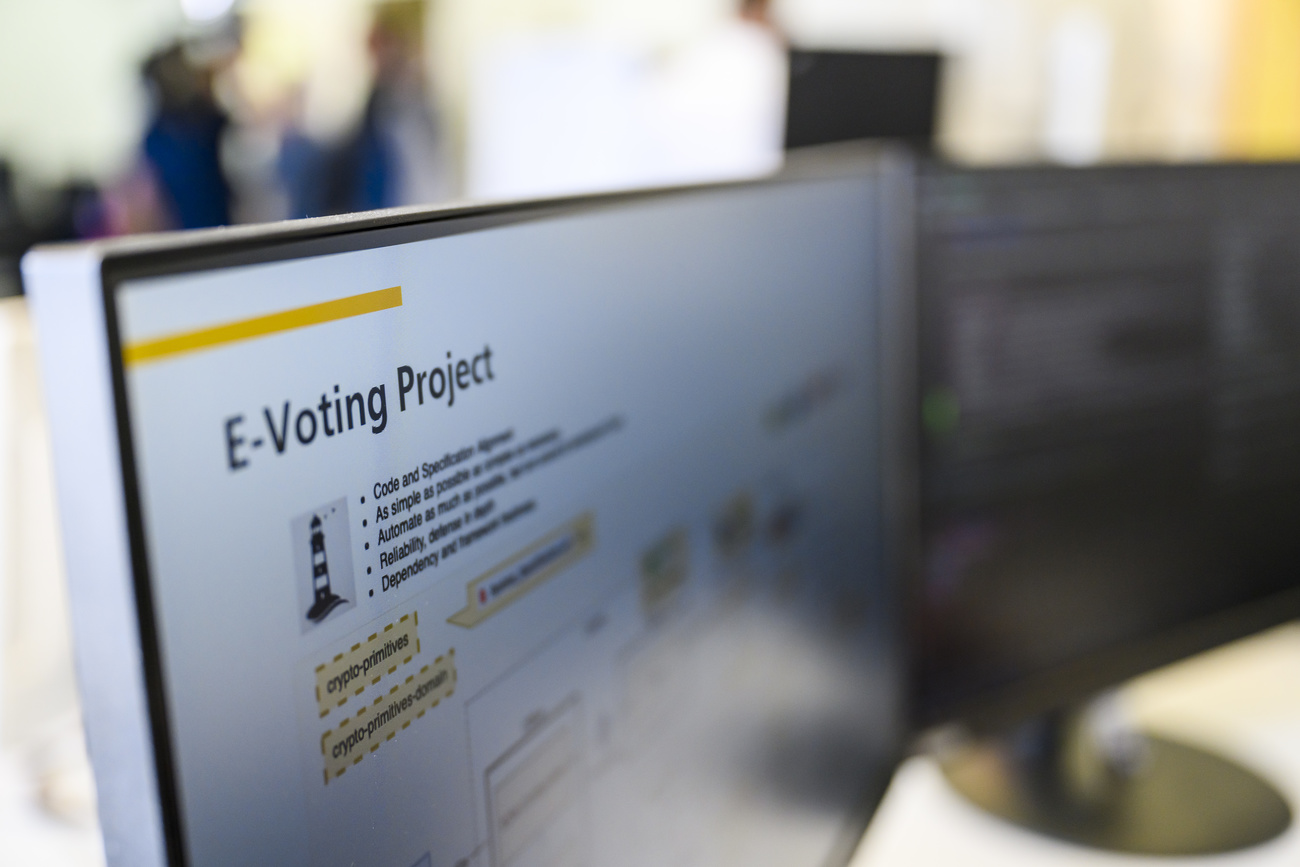
Switzerland Today
Hello Swiss Abroad,
There was good news out of Bern for Swiss voters from abroad. E-voting received a greenlight but there’s some fine print to the deal, starting with the fact that it’s only available for the moment for voters registered in three cantons. But it’s movement after online voting trials were shelved in 2019.
In other news, it’s World Wildlife Day so get outside and admire nature's beauty. Have a nice weekend.

In the News: SWISS is flying high, young women work more, and a parliamentarian takes a bow.Germany wants to buy back some of Leopard tanks; Switzerland is in no rush
- Swiss International Air Lines (SWISS) has recovered from its pandemic nosedive and landed back in the black. The airline posted an operating profit of CHF456 million ($486 million), a nearly CHF900 million improvement from its CHF405 million loss the previous year.
- Over the past 30 years, the percentage of young women and men in the Swiss labour market has become much closer, according to the Federal Statistical Office (FSO). Some 79.6% of working age women (15 to 64) were in the labour market (working or looking for a job) last year, compared with only 68.2% in 1991. More women are participating in the labour market particularly in the 25-to-39 age group. This indicator rose from 72.3% in 1991 to 87.3% last year.
- Climate demonstrations took to the streets in eight cities today. Their key demand was to stop the construction of reserve power plantsExternal link. In the face of acute power shortages, the focus should be on reducing energy consumption rather than tapping CO2 emitting power plants, the demonstrators argue.
- Roger Köppel, a parliamentarian from the right-wing Swiss People’s Party, caught even his own party off guard today when he announced he would no longer stand for electionExternal link in October 2023. Köppel, who is also editor of the Weltwoche newspaper, said he wants to devote more energy to his business ventures and avoid possible conflicts of interest between the increasingly international orientation of the newspaper and his political duties.
The big news this morning was that Germany has formally asked Switzerland to buy back some of its decommissioned Leopard 2 tanks. This would enable the German manufacturer Rheinmetall to replace tanks that European Union and NATO members have supplied to Ukraine. This would in turn allow the countries to send more military support to Ukraine.
The Swiss military currently has 134 Leopard 2 tanks in service and a further 96 in storage. From the army’s view, Switzerland doesn’t need around 62 of these, writesExternal link the Tages-Anzeiger.
As we’ve written about many times before, such requests aren’t welcomed with open arms in Switzerland. Under its neutrality laws and a separate arms embargo, Switzerland is prohibited from sending weapons directly to Ukraine. In this case Germany guarantees the Swiss Leopard 2 tanks wouldn’t go to Ukraine.
The government plans to comment on this on Monday and parliament is expected to come to a decision about arms re-exports soon. But what does the public think? If a poll in the Tages-Anzeiger is any indication, there’s strong support for sending the tanks.
When I took part in the poll this afternoon, some 89% of the 4,332 people who had voted were in favour of selling the tanks to Germany.

Four years after it was shelved, e-voting makes a comeback. That’s good news for the Swiss Abroad and democracy.
Patience pays off and when it comes to e-voting the Swiss abroad have needed a lot of it. But today, that patience showed some results when the Federal Chancellery announced that cantons of Basel-City, St Gallen and Thurgau have been granted licences to resume trials with online voting (e-voting) in federal votes. This allows any Swiss voters abroad who are registered in any of the three cantons to use the Swiss Post’s new online voting system.
The authorisation includes the popular vote scheduled for June 18 this year. It runs up to and including the popular vote on May 18, 2025, according to a government press release. For the first vote in June 2023, the cantons asked that a total of around 65,000 voters be allowed to take part in the trials, or around 1.2% of all Swiss voters.
Previous e-voting trials were halted because of security concerns. Four years later, the chancellery said that it had gone through a number of security and privacy checks, and that it planned to improve the system from lessons during the trials.
The Organisation for the Swiss Abroad (OSA) has been campaigning for years to get e-voting up and running, arguing that its absence is a danger to democracy. Around a third fewer Swiss expatriates have cast votes in their homeland since the suspension of an e-voting service.
During the press conference today, Barbara Schüpbach-Guggenbühl from the Basel-City government made a strong plea for e-voting, pointing to today’s youth. Is it worth it to implement something that isn’t perfect? Yes, she said. “We need to meet voters where they are and where they will be in the future. Does a 14-year-old read a paper newspaper? Do they write their homework by hand?” They are completely in a digital world, she said. We need to reach them.
More

In compliance with the JTI standards
More: SWI swissinfo.ch certified by the Journalism Trust Initiative









